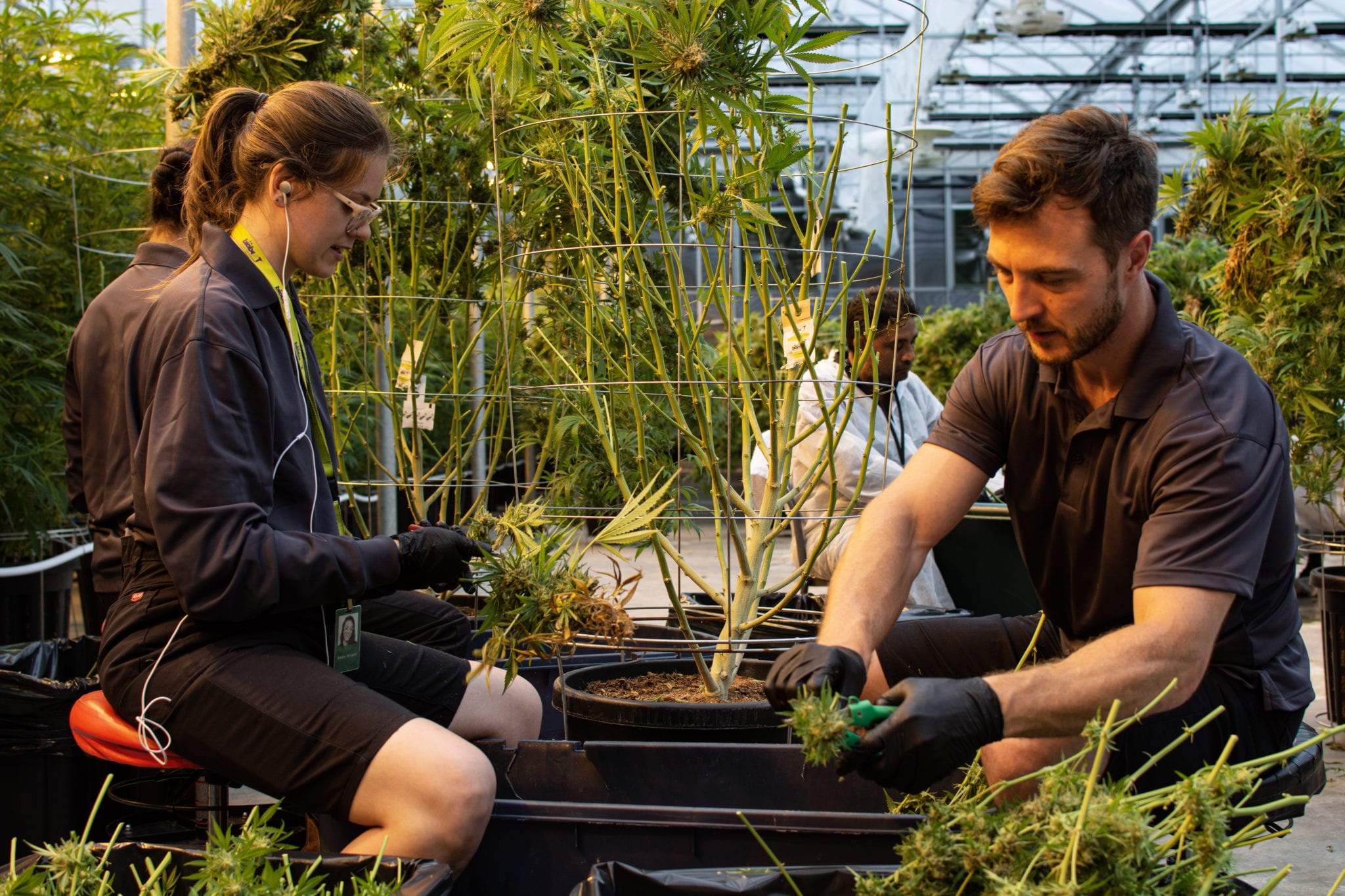Canada’s cannabis regulator is asking for public feedback on proposed amendments for some of its strict rules that the industry has said go against the government’s own stated health and safety mandates.
In the Dec. 12 edition of the Canada Gazette, Health Canada wrote it will be taking comments from stakeholders on five regulatory proposals: non-therapeutic research and testing activities; public possession limit amounts for cannabis 2.0 products; product labelling; micro and nursery cultivation licences; and Covid-19 measures.
The Cannabis Act and associated regulations were intended to create a tight legal framework for the production, distribution, sale and possession of weed in the country.
But the industry says changes are needed to curb the illicit market and better protect public health and safety by allowing adults to access legal weed, which are stated goals of the Canadian government. Producers and retailers have called out Health Canada for being too slow and uniformed to make needed course corrections to achieve its own mandates.
Read more: Health Canada doesn’t understand cannabis: industry-led review session II
The 30-day public comment period begins Saturday and Health Canada said inquiries should be emailed to cannabis.consultation@canada.ca with the title of the Gazette article — “Consultation on the Cannabis Regulations: Cannabis research and other regulatory issues” — in the subject line.

Burdensome study requirements and persistent delays in federal licensing have been cited by the industry as threats to Canada’s global leadership stakes in cannabis research. Image via Deposit Photos
Removing red tape could bolster cannabis research
Health Canada said it’s heard from academic and industry researchers that have been facing challenges in conducting non-therapeutic studies involving people using commercial cannabis products. Under Canada’s Food and Drug Regulations, researchers have to comply with rigorous clinical trial requirements that slow non-therapeutic studies like investigating the time-to-onset or duration of effects of a weed product, or the impact of use on driving.
“Health Canada recognizes that conducting research involving human participants with cannabis is critical to generating high-quality evidence to provide adult Canadians with the necessary knowledge to make informed decisions on their consumption of cannabis and its risks,” the regulator wrote in the Gazette.
The federal agency proposes changing the rules so that non-therapeutic research is regulated exclusively under the Cannabis Act and associated regulations. It also proposes implementing new health and safety controls while broadening adverse reaction reporting to mitigate concerns about abandoning the Food and Drug Regulations.
Additionally, Health Canada is looking at amending regulations to bolster support for lab testing on the hundreds of complex characteristics of cannabis products.
By improving cannabis reference standards, the agency says it could assist laboratories in accurately testing different product characteristics and validating the accuracy of their methods.
Health Canada is considering exempting private and government laboratories from strict good production practices requirements when they conduct tests. The agency also intends to allow research licence holders and government laboratories to produce cannabis test kits for the industry, and produce and sell cannabis reference standards.
The agency is also mulling expanding acceptable qualifications for the person in charge of laboratory testing at a facility. The proposed change could help ensure qualified individuals with sufficient experience and a range of different academic credentials would be eligible to hold this position.
Read more: Canada squeaks out passing grade on legalization 2 years in

Limits for possessing cannabis-infused drinks and plain packaging rules have repeatedly been criticized by the industry and even provincial distributors. Photos via Health Canada and Canopy Growth Corp.
Cannabis six-packs, smarter labelling and empowering craft growers
On the consumer side, Health Canada is reviewing public possession limits for different product formats like infused beverages.
While adults can carry up to 30 grams of dried flower, the industry has been highly critical of the regulator’s math when considering the THC equivalent of non-solids containing weed compared to 1 gram of dried flower. Canada’s limits on weed drinks continue to confuse consumers and frustrate the retailers trying to explain them.
“Some stakeholders have suggested that the public possession limits for non-solids containing cannabis (e.g. cannabis beverages) are too low, and that the public possession limits are encouraging consumers to purchase higher potency cannabis beverages,” Health Canada wrote. This exact sentiment was expressed to Mugglehead by the Ontario Cannabis Store earlier this year.
Read more: Free the cannabis six-pack
And because cannabis contains hundreds of chemical substances like cannabinoids and terpenes, Health Canada is asking stakeholders if it should require more of that information on product labels.
Current regulations necessitate labels indicate the quantity or concentration of THC and CBD. Producers are allowed to display the name of the product and a small company logo, as well as the quantity or concentration of other cannabinoids and terpenes.
“Is there any other labelling information that would help consumers make decisions to support informed and responsible use?” Health Canada asks.
Read more: Plain packaging rules add to deceiving high-THC hype, pot prof says
The agency is also asking smaller producers if there are any specific regulations they want to see changed to level the playing field against larger firms with deep pockets.
To create a competitive legal industry that includes both small and large players, Health Canada included three licence sub-classes: micro-cultivation, micro-processing and nursery.
While these licences are subject to some reduced regulatory requirements such as the area of physical security required, smaller growers say burdensome testing, microbial limits and other factors favour bigger players.
Read more: How a wave of irradiation could hurt Canadian micro-producers
Finally, Health Canada is considering making some temporary Covid-19 measures permanent. In April, the regulator aimed to support operators by removing some logistical burdens faced in early days of the pandemic. Some of the measures include granting virtual witnessing of the destruction of cannabis and simplifying requirements for a security person accompanying weed being treated at an irradiation facility.
Top image via Tantalus Labs
jared@mugglehead.com














